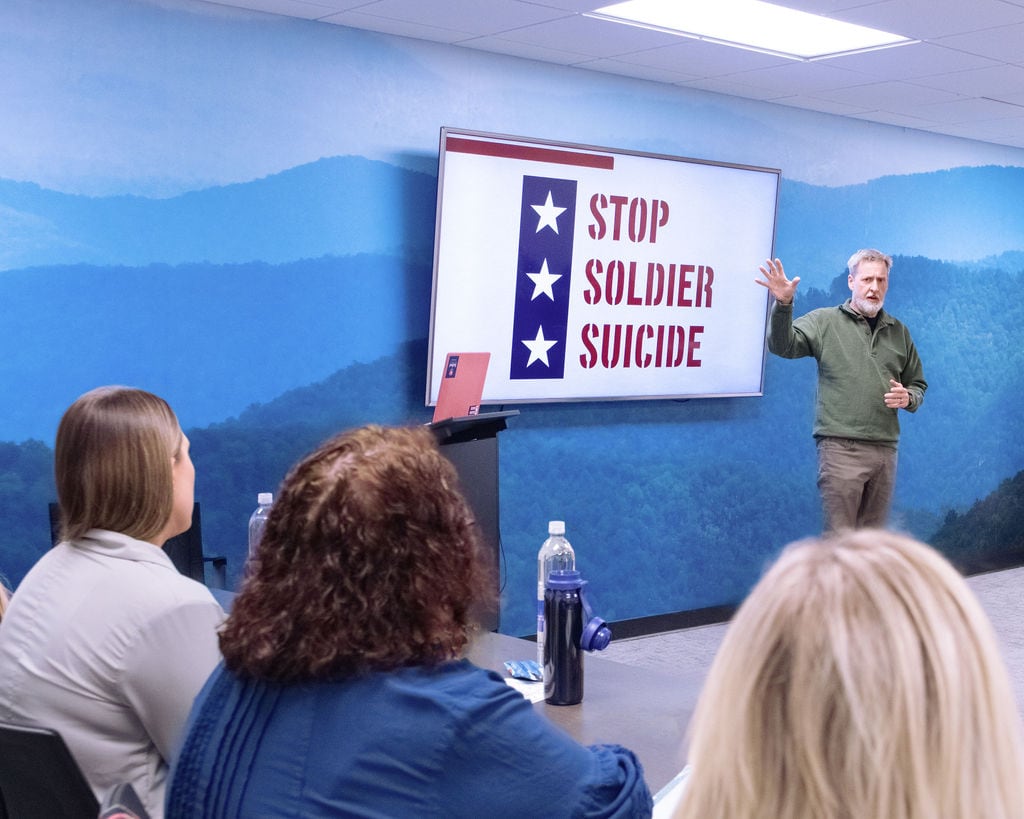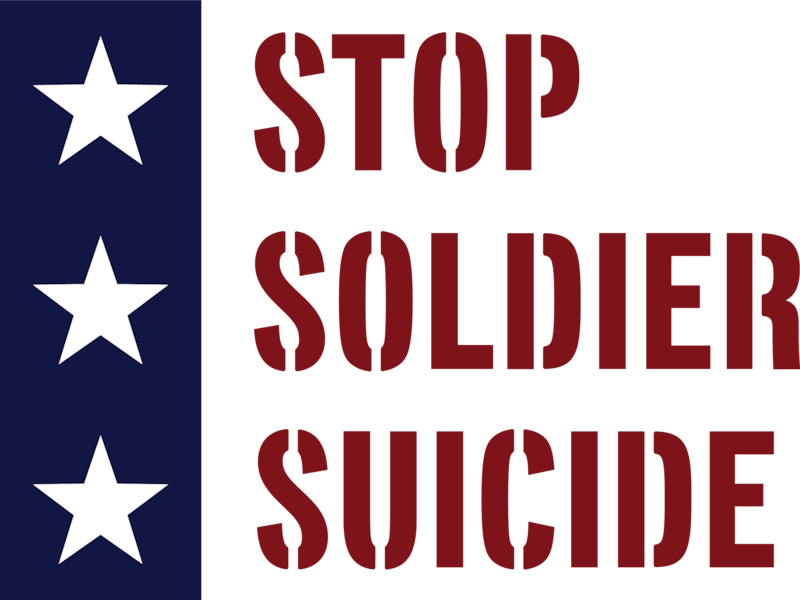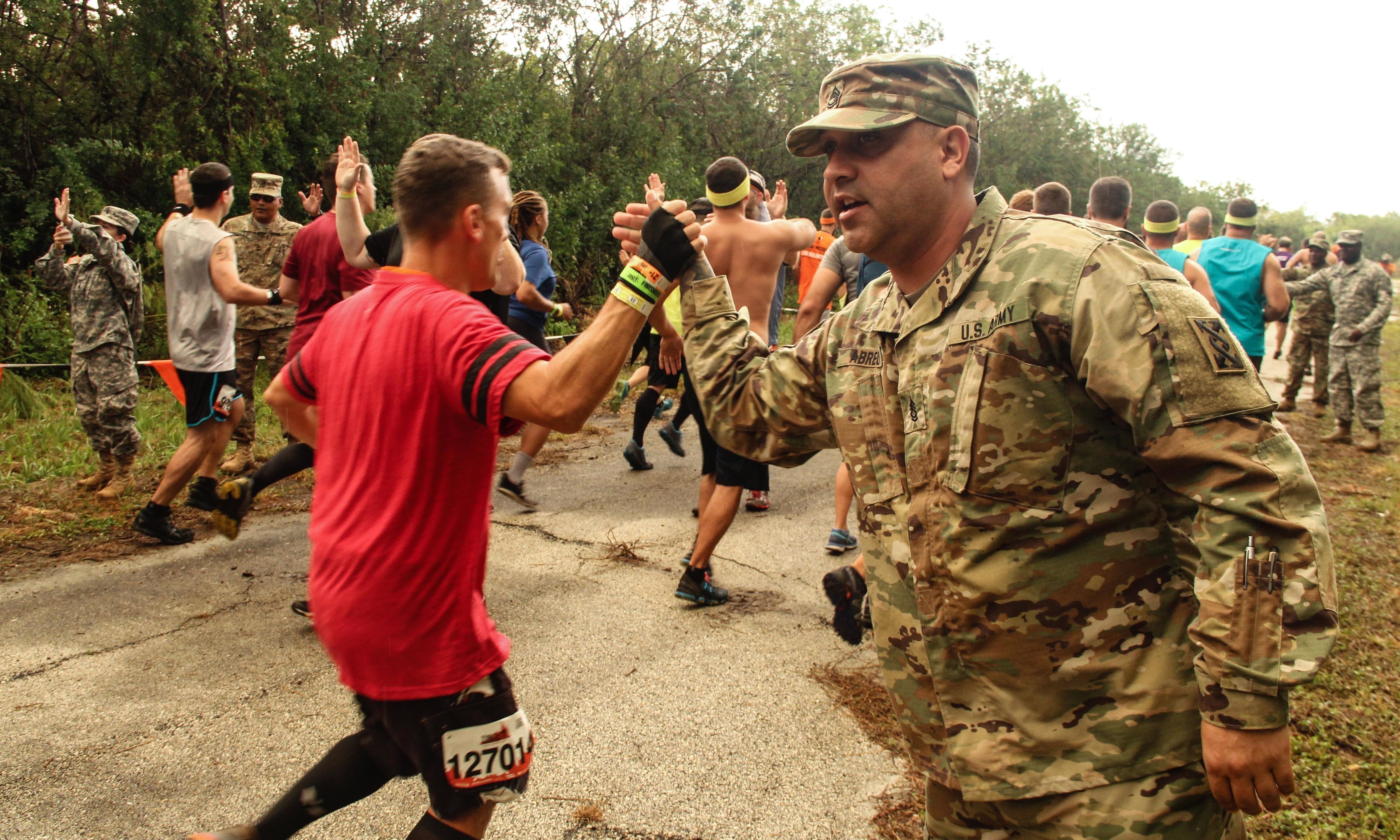This thought leadership article is authored by Keith Hotle, CEO of Stop Soldier Suicide.
Not every fallen hero wore their scars on the outside. Many veterans who lost their struggle with suicide carried the weight of service, the toll of trauma, and often, the burden of feeling forgotten. Most of these losses happened far from the battlefield - in silence, in struggle, in isolation.
Suicide Prevention Month, which happens every September, is a unique opportunity for those from within and around the military community to pause and consider the suicide crisis and what it will take to end it. But this month can’t stop at reflection. It must be a call to action.
We must ask ourselves earnestly and sincerely: What will it take to solve the military suicide crisis? Then, we must find the courage to take necessary next steps so that, together, we can prevent more of these tragic deaths.
As someone whose career has been focused on suicide prevention, and as the CEO of Stop Soldier Suicide, a national non-profit focused soley on solving the suicide crisis within the military, I invite you into this movement to prevent future loss of life. While this issue is a complex and wicked problem, I know that purposeful connection acoss three key contexts, has a critical role in the fight to end the suicide crisis within the military.
Purposeful Connection with Veterans
There are many ways that we can work to save lives and prevent suicide. A starting point is helping our veterans find meaningful and purposeful connection.
Thomas Joiner’s seminal “Interpersonal Theory of Suicide” serves as a stark reminder of how deeply intertwined our mental health is with our sense of connection, purpose, and safety. Dr. Joiner’s theory lays out three primary risk factors for suicide: thwarted belongingness (isolation), perceived lack of purpose, and access to lethal means.
As our Stop Soldier Suicide team works to prevent veteran suicide, these aren’t abstract ideas.
They’re real, observable, and often tragically linked. Purpose and connection, for example, can move in tandem. When someone finds meaningful work, a community project, or a spiritual anchor, they’re usually not elements enjoyed in isolation. The opposite is true, too. When isolation sets in, purpose often slips away.
The U.S. Surgeon General recently called out a national epidemic of isolation, and the numbers are sobering:
- 1 in 2 adults report feeling lonely
- Young adults experience this even more (nearly 60% feel this frequently)
- The health impact of loneliness is comparable to smoking 15 cigarettes a day
Our team has long believed that honoring a veteran’s service means acknowledging their full reality - the bonds they’ve lost, the missions they miss, the identity they may still be seeking. Our work must be relational, mission-driven, and deeply personal. When we restore connection, purpose, and safety, we save lives.
Those who are part of the military community or care for someone who is a veteran or service member can support veterans in a critical way without having a clinical degree or social work experience. Connect with them, help them find community and engagement, and in doing so know you are supporting their well-being. This information should both encourage and empower you as you recognize that anyone can facilitate life-saving connection.
Purposeful Connection to Leaders
An important lesson I’ve learned over the last two decades is that none of us who are dedicated to this life-saving goal can win this fight alone. Each organization and individual working with at-risk veterans has something important to offer. Indeed, we have a shared responsibility to our veterans to stand together; we can do so much more than we ever could apart.
While that may sound like an obvious statement, it is clear that some leaders and organizations are not leaning into that reality, and the “I alone can fix it” mindset is pervasive. I’ll admit to times where – frustrated with inertia, bureaucracy and ineffectual strategies – I’ve fallen prey to such thinking. However, the reality is that those working in this field have the best chance to drive real change by combining our knowledge, resources, and expertise. That’s why deepening connections with leaders tackling the same issue as Stop Soldier Suicide - military suicide - is vitally important to us.
Through professional connection and alignment we can understand the strategies that work for others and bring those insights into our organization. It is also how we can share what we know, and our evidence-based practices, with others who are serving veterans and working to prevent suicide. Our organization has found tremendous value by partnering with other leading organizations in the veterans wellness space like Vets for Warriors, Centerstone Military, the Bush Institute’s Veteran Wellness Alliance, USAA Face the Fight, and the American Legion on their coalition side.
We can learn so much from each other. The more we focus on sharing meaningful insights, the more we can improve our collective approach to addressing veteran suicide. The more we work synergistically, the more veteran lives we can save.
Purposeful Connection with Supporters
When it comes to big, wicked problems like suicide within the military and veteran communities, it takes widespread, robust, and multi-dimensional solutions to enact the change that we need. That is why the base of support must also be broad, varied, and committed. From clinicians to academic partners, data scientists to donors, and organizational leaders to everyday supporters, we need diverse perspectives at the table.
Each of us, from our own vantage points, education, and lived experience, bring ourselves to this fight for our veterans. We can consider what we know that might be of benefit to the broader community. Maybe it is expertise or maybe it is funding. All of it matters!
I am certain of this: Connection saves lives and we can prevent more losses, together.
About Keith Hotle:
Keith Hotle is Chief Executive Officer of Stop Soldier Suicide, an organization dedicated to preventing military suicide through innovative, data-driven support for veterans and service members. Hotle holds a Master’s in Public Administration from the University of Wyoming and a Juris Doctorate from the University of Texas Law School. His background includes service as a senior public health administrator and his experience is marked by extensive community service. He is focused on creating programs and services that meet veterans where they are, providing life-saving resources and support. Hotle is passionate about developing services that bring hope to veterans and empowering them to build healthy, fulfilling lives.



